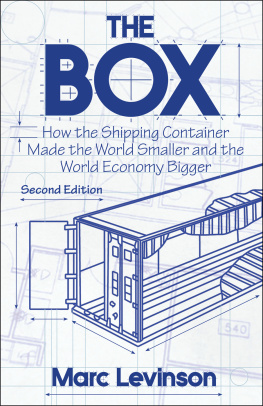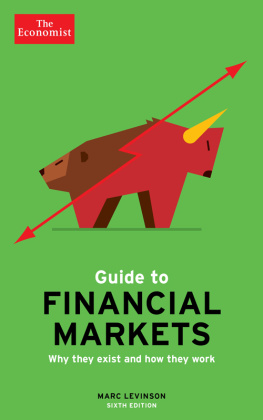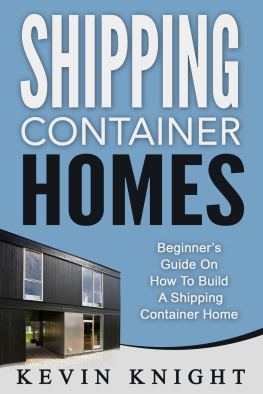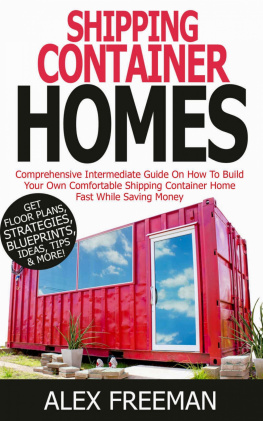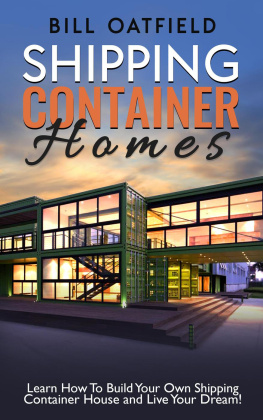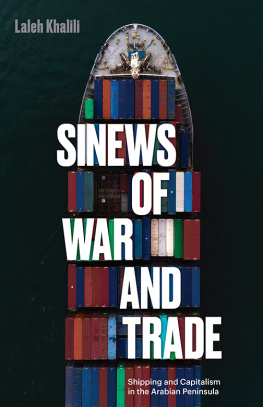
Praise for the original edition:
[A] classic tale of trial and error, and of creative destruction.
Virginia Postrel, The New York Times
Like much of todays international cargo, Marc Levinsons The Box arrives just in time.Tim W. Ferguson, The Wall Street Journal
Levinson has produced a marvelous read for anyone who cares about how the interconnected world economy came to be.Neil Irwin, Washington Post
Ingenious analysis of the phenomenon of containerism.
Stefan Stern, Financial Times
[An] enlightening new history. [The shipping container] was the real-world equivalent of the Internet revolution.Justin Fox, Fortune
The Box makes a strong argument. Levinson spins yarns of the men who fought to retain the old On the Waterfront ways and of those who made the box ubiquitous.Michael Arndt, BusinessWeek
Marc Levinsons The Box is broad-ranging and readable. It describes not just the amazing course of the container-ship phenomenon but the turmoil of human affairs in its wake.
Bob Simmons, The Seattle Times
Mr. Levinsons elegant weave of transportation economics, innovation, and geography is economic history at its accessible best.
David K. Hurst, Strategy + Business
The Box is an engrossing read. The book is well-written, with detailed notes and an index. I found it absorbing and informative from the first page.Graham Williams, Sydney Morning Herald
The Box is highly recommended for anyone with an interest in understanding the emergence of our contemporary globalized world economy.Pierre Desrochers, Independent Review
A fascinating history of the shipping container.Richard N. Cooper, Foreign Affairs
For sheer originality [this book] by Marc Levinson, is hard to beat.David Smith, The Sunday Times (London)
This is a smoothly written history of the ocean shipping container. Marc Levinson turns it into a fascinating economic history of the last 50 years that helps us to understand globalization and industrial growth in North America.Harvey Schachter, Globe and Mail
Excellent.J. Bradford DeLong, The Edge Financial Daily
This is an ingenious analysis of containerizationa process that, Levinson argues, in fact made globalization possible.Business Voice
The Box does a fine job of demonstrating how exciting the container industry is, and how much economists stand to lose by ignoring it.
William Sjostrom, EH.Net
[T]he insights the book provides make it a worthwhile read for anyone interested in how international trade in goods has evolved over the last 50 years.Meredith A. Crowley, World Trade Review
Marc Levinsons The Box illustrates clearly how great risks are taken by entrepreneurs when entrenched interests and government regulators conspire against them. The story of the shipping container is the story of the opponents of innovation.Chris Berg, Institute of Public Affairs Review
The shipping container didnt just rearrange the shipping industry, or make winners of some ports (Seattle and Tacoma among them). It changed the dynamics and economics of where goods are made and shipped to.Bill Virgin, Seattle Post-Intelligencer
A fascinating new book. [I]t shows vividly how resistance to technological change caused shipping movements to migrate away from the Hudson river to other East Coast ports.Management Today
Using a blend of hard economic data and financial projections, combined with human interest, Levinson manages to provide insights into a revolution that changed transport forever and transformed world trade.Leon Gettler, The Age
Levinson uses rich detail, a combination of archival and anecdotal data to build his story, and is constantly moving across levels of observation. And the story of the box is a very good read.
Administrative Science Quarterly
The Box reveals the subject to be interesting and powerful, shedding light on all kinds of issues, from the role of trade unions to the Vietnam War.NUMAST Telegraph
The Box makes for an excellent primer on innovation, risk taking, and strategic thinking. Its also a thoroughly good read.
Craig B. Grossgart, Taiwan Business Topics
The ubiquitous shipping container as Mark Levinsons multilayered study shows has transformed the global economy.The Australian
The
Box

The
Box

HOW THE SHIPPING CONTAINER MADE THE WORLD SMALLER AND THE WORLD ECONOMY BIGGER
Second Edition
Marc Levinson
PRINCETON UNIVERSITY PRESS
PRINCETON AND OXFORD
Copyright 2016 by Princeton University Press
Published by Princeton University Press, 41 William Street,
Princeton, New Jersey 08540
In the United Kingdom: Princeton University Press,
3 Market Place, Woodstock, Oxfordshire OX20 1TR
press.princeton.edu
Jacket art courtesy of Shutterstock
All Rights Reserved
Library of Congress Cataloging-in-Publication Data
Levinson, Marc.
The box : how the shipping container made the world smaller and
the world economy bigger / Marc Levinson. Second Edition.
pages cm
Includes bibliographical references and index.
ISBN 978-0-691-17081-7 (pbk. : alk. paper) 1. ContainerizationHistory.
2. McLean, Malcolm Purcell, 19132001. I. Title.
TA1215.L47 2016
387.5442dc23
2015024925
British Library Cataloging-in-Publication Data is available
This book has been composed in Sabon LT Std text
with Scala Sans OT Display
Printed on acid-free paper.
press.princeton.edu
Printed in the United States of America
1 3 5 7 9 10 8 6 4 2
To Aaron, Rebecca, and Deborah

Contents

Preface

W riting a book is usually a solitary venture, but The Box was a more private project than most. This was not entirely my choice. Early on in my work, when acquaintances would ask what Id been doing, I would proudly tell them I was writing a history of the shipping container. The result of this disclosure was invariably stunned silence, as my interlocutors tried to think of something to say about a boring metal box. Eventually, I stopped talking about the book altogether, simply to avoid the embarrassment that every mention of the topic would bring.
The response to the books publication in the spring of 2006, then, caught me by surprise. I knew that the history of containerization would show itself to be a far more absorbing topic than readers imagined, and I figured that economists and logistics specialists might be intrigued by my argument that tumbling transport costs were critical in opening the way to what we now call globalization. I had not the slightest clue, however, that the container was on its way to becoming something trendy. Then the invitations began to arrive. In New York, I shared a platform with architects using containers to design office buildings and apartments. In Genoa, I spoke alongside an entrepreneur who turned containers into temporary art galleries, while in Santa Barbara, California, the local museum joined forces with a university to promote a series of public events on ramifications of the container that I had never considered. The ugliness of stacks of abandoned containers; the security threat posed by millions of boxes with undetermined contents; the environmental damage caused by massive movement of cargo: all of these issues came to the fore in reviews and critical articles.
Next page
